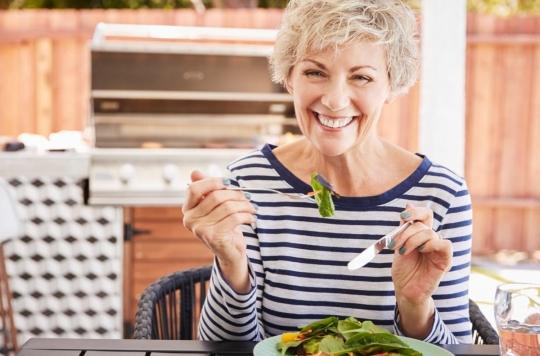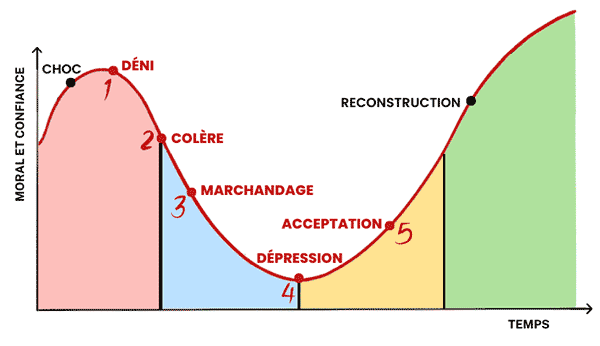Here are 3 dietary changes that women over 50 affected by menopause should adopt.

- In France, around the age of 65, it is estimated that 39% of women suffer from osteoporosis.
- 25% of people over 70 are affected by sarcopenia.
- A severe vitamin B12 deficiency can lead to nerve damage, loss of sensation in the hands and feet, motor disorders or even dementia.
Dietary needs change throughout life. Depending on age, the body requires particular nutrients in certain quantities. It helps to stay healthy. Thus, women in their fifties should adopt some dietary changes to keep in shape.
Calcium and vitamin D to reduce the risk of osteoporosis
As we age, bone mass naturally decreases in the body. In some people, the phenomenon increases the risk of osteoporosis. “Osteoporosis is a diffuse disease of the skeleton characterized by a decrease in bone density and alterations in the micro-architecture of the bonesspecifies theHealth Insurance. These alterations make the bone more fragile and increase the risk of fracture.” This disease is two to three more common in women than in men, particularly because of hormonal changes associated with menopause. A suitable diet reduces the risk: “Prefer calcium-rich foods (dairy products, calcium mineral waters, etc.) and those that provide vitamin D (oily fish, egg yolk, butter, etc.)advises theHealth Insurance. It is recommended to consume at least 1200 mg of calcium per day for women over 50. Adequate weight, regular physical activity, limited alcohol consumption and smoking cessation are also determining factors regarding the risk of osteoporosis.
Proteins to protect the muscles
It’s not just the bones that bear the brunt of aging, the muscles also suffer the consequences of aging. This phenomenon has a name: sarcopenia, loss of muscle mass. Between the ages of 50 and 80, we lose an average of 30% muscle mass. Diet is one of the parameters to reduce risk. According to a study by Cerin, seniors should consume between 1 and 1.2 kg of protein per kilo of weight per day, which corresponds to 60 to 72 g of protein per day for an elderly person weighing 60 kilos. “The experts of the European Society for Clinical and Economical Aspects of Osteoporosis also recommend, for the musculoskeletal health of women over 50, the consumption of at least 20 to 25 g of protein of high nutritional quality at each meal. , in combination with regular consumption of calcium and vitamin D and physical activity”indicates the document. For example, the consumption of 100 g of meat, two large eggs or 250 g of cooked semolina with 100 g of chickpeas corresponds to 18 to 20 g of protein.
Vitamin B12 to protect the brain
With age, there is also a risk of less absorption of nutrients, which are essential for our good health. Among these, there is in particular vitamin B12, which is involved in brain health. Men and women over 18 should consume 4 µg/d, according to ANSES recommendations. “The main food sources of vitamin B12 are offal (especially liver), fish, eggs, meat, milk and other dairy products”Explain ANSES. For vegetarians/vegans, there are dietary supplements.
Good health after 50 also requires sufficient hydration and regular physical activity. According to’World Health Organization150 to 300 minutes of moderate-intensity endurance activity should be practiced at this age.













